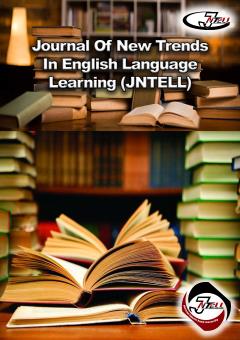The Effect of Learner-Oriented Assessment (LOA) on the Development of Iranian EFL Learners’ Interlanguage Pragmatic (ILP) Competence
Subject Areas : Applied LinguisticsArezoo Nik Khormizi 1 , Gholam-Reza Abbasian 2 * , Massood Yazdanimoghaddam 3
1 - Ph.D. Candidate, Kish International Branch, Islamic Azad University, Kish Island, Iran
2 - Imam Ali University, Tehran, Iran
3 - دانشکده زبانهای خارجی، واحد گرمسار، دانشگاه آزاد اسلامی، گرمسار، ایران
Keywords: Assessment, interlanguage pragmatic (ILP) competence, learner-oriented assessment (LOA),
Abstract :
Interlanguage pragmatic (ILP) is a complex dimension of English language for learners. Learner-oriented assessment (LOA) can be utilized as a strategy to help learners acquire ILP. This study sought to investigate the effect of learner-oriented assessment (LOA) on the development of Iranian EFL learners’ interlanguage pragmatic (ILP) competence. To this end, a quasi-experimental one-group pre-test post-test design was used. Participants consisted of 30 conveniently selected female intermediate EFL learners from a language institute in Mashhad. For data collection, Quick Placement Test (QPT), a researcher-made LOA Questionnaire and Written Discourse-Completion Test (WDCT) were used. Data analysis was run using exploratory factor analysis, confirmatory factor analysis, Cronbach’s Alpha Test, and mixed repeated measures ANOVA. The results showed that the LOA Questionnaire enjoyed high validity and reliability. Moreover, it was proved that LOA was significantly effective on the development of Iranian EFL learners’ ILP competence. The results have some implications for EFL teachers, learners and curriculum planners.
Ary, D., Jacobs, L. C., & Sorensen, Ch. (2010). Introduction to research in education (8th ed.). Wadsworth Group.
Ashegh Navaie, L. (2018). The effect of learning-oriented assessment on learning pronunciation among Iranian EFL learners. International Journal of Education & Literacy Studies, IJELS, 6(2), 63-68.
Atherton, J. C. (2005). Resistance to learning: a discussion based on participants in in-service professional training programmes. Journal of Vocational Education & Training, 51(1), 77–90. https://doi.org/10.1080/13636829900200070
Beikmohammadi, M., Alavi, S. M., & Kaivanpanah, Sh. (2020). Learning-oriented assessment of reading: a mixed methods study of Iranian EFL university instructors' perceptions and practices. Journal of Foreign Language Research, 10(2), 316-329.doi: 10.22059/jflr.2019.264150.541.
Beltrain, J. (2014). Learning- Oriented Assessment: The Learning Dimension. Teachers College, Columbia University Working Papers in TESOL & Applied Linguistics, 14 (2), 47- 49.
Birjandi, P., & Rezaei, S. (2010). Developing a multiple-choice discourse completion test of interlanguage pragmatics for Iranian EFL learners. ILI Language Teaching Journal (Special Issue: Proceedings of the First Conference on ELT in the Islamic World), 6 (1, 2), 43-58.
Bransford, J. D., Brown, A. L., & Cocking, R. R. (2000). How people learn: Brain, mind, experience, and school. National Academy Press.
Carless, D. (2015). Exploring learning-oriented assessment processes. Higher Education, 69(3), 963-976.
Carroll, B. A. (2017). A learning- oriented assessment perspective on scenario- based assessment. Columbia University Working Papers in Applied Linguistics & TESOL, 17 (2), 28- 35.
Cook, V. (2001). Second language learning and language teaching (3rd ed.). Arnold.
Crystal, D. (1997). English as a global language. Cambridge University Press.
Esfandiari, R., & Allaf-Akbary, O. (2024). The Role of learning-oriented language assessment in promoting interactional metadiscourse in ectenic and synoptic EFL learners. Journal of Modern Research in English Language Studies, 11(3), 181-206. DOI: 10.30479/jmrels.2024.19777.2305
Fitriyah, I., & Jannah, M. (2021). Online Assessment Effect in EFL Classroom: An investigation on students and teachers’ perceptions. IJELTAL (Indonesian Journal of English Language Teaching and Applied Linguistics), 5(2), 265. https://doi.org/10.21093/ijeltal.v5i2.709
Galikyan, I., Madyarov, I., & Gasparyan, R. (2019). Student test takers’ and teachers’ perceptions of the TOEFL junior standard test. ETS Research Report Series, 8(1), 1–15. https://doi.org/10.1002/ets2.12264
Heil, C. (2014). Learning- oriented assessment: The proficiency dimension. Teachers college, Columbia University Working Papers in TESOL & Applied Linguistics, 14 (2), 44- 46.
Huang, Y. (2007). Pragmatics. Oxford University Press.
Jonassen, D. H. (2000). Computers as mindtools for schools: Engaging critical thinking. Prentice Hall.
Kalali Sani S. F., Motallebzadeh K., Khodabakhshzadeh H., Zeraatpisheh M. (2022). On the Iranian English as foreign language novice and experienced teachers’ attributional styles and professional identity. Frontiers in Psychology, 12, Article 823815. https://doi.org/10.3389/fpsyg2021.823815
Kasper, G., & Rose, K. R. (2002). Pragmatic development in a second language. Language Learning, 52(1), 1–352.
Purpura, J. (2004). Assessing grammar. Multilingual Matters. https://doi.org/10.21832/9781847696397
Rich, J. (2011). An experimental study of differences in study habits and long-term retention rates between take-home and in-class examinations. International Journal for Academic Development, 2(2), 1–10.
Selinker, L. (1972). Interlanguage. Product Information International Review of Applied Linguistics in Language Teaching, 10(3), 209-241. http://doi.org/10.1515/iral.1972.10.1-4.209
Smith, M. R. (2014). Learning-oriented assessment: The contextual dimension. Teachers College, Colombia University Working Papers in TESOL & Applied Linguistics, 14 (2), 41- 43.
Stalnaker, R. (1998). On the representation of context. Journal of Logic, Language and Information, 7(1), 3–19. https://doi.org/10.1093/0198237073.003.0006
Suryoputro, M. R. (2018). Analysis of manual material handling activity to increase work productivity (Case study: manufacturing company). MATEC Web of Conferences, 154(2), Article 01085.
Tarone, E. (2001). Interlanguage. In R. Mesthrie (Eds.), Concise encyclopedia of sociolinguistics (pp. 475- 81). Elsevier.
Vygotsky, L. (1978). Mind in society: The development of higher psychological processes. Cambridge: Cambridge MA: Harvard University Press.
Weimer, M. (2002). Learner-centred teaching: Five key changes to practice. Jossey-Bass.
Xu, Q., & Liu, J. (2018). A study on the washback effects of the test for English majors (TEM): Implications for testing and teaching reforms. Springer. https://doi.org/10.1007/978-981-13-1963-1

